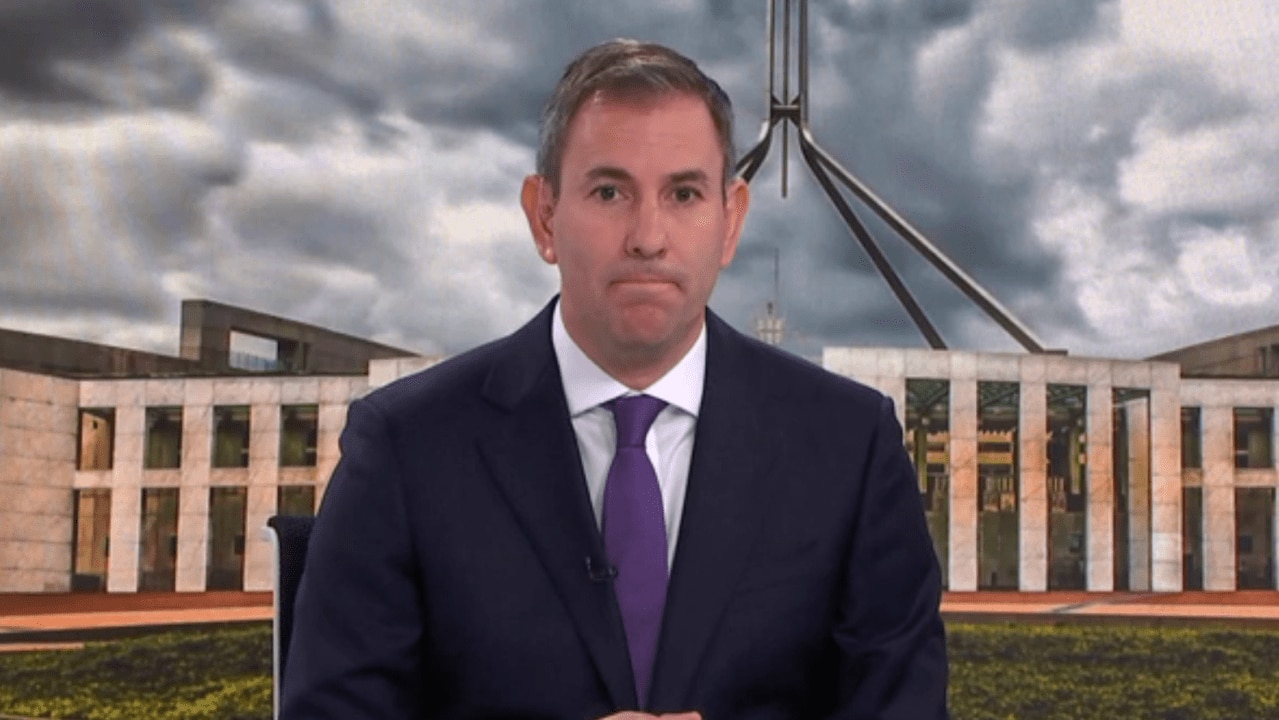The Treasurer has maintained the government is doing what it can to help with the cost of living after facing a barrage of questions on whether stage three tax cuts would give struggling Aussies any breathing room in their budgets.
More than 13 million taxpayers will receive a cut from July 1 with someone on an average salary of $80,000 set to receive an annual tax cut of $1,679 compared to previous settings.
A $300 energy rebate, applied to bills quarterly, also kicks in for all households while many workers will benefit from an increase in minimum and award wages.
Jim Chalmers spruiked these measures as “meaningful” and “responsible,” telling Sky News Australia on Monday Labor was responding to the cost pressure crisis.
However, host Peter Stefanovic quizzed the politician on whether Australians would even notice the extra cash from the cuts as they battle bigger bills and higher mortgage repayments.
“More people are being forced into hardship plans when it comes to energy bills, mortgage arrears are currently at an eight-year high … will folks even notice that extra help that starts from today?” he asked.
“I think they will, the average tax cut for example is $36 a week. The average tax cut for a household with kids is $63 a week. And that is in addition to energy bill relief, a lot of people getting a pay rise,” Mr Chalmers replied.
“We are doing as much as we responsibly can.
“Conscious of the constraints in the budget and the pressure on inflation but really importantly what we are doing today … we are doing it in a way that puts downward pressure on inflation.”
Liberal Senator Jane Hume speaking earlier the same day argued any extra cash Australians will pocket as a result of the tax cuts could be swallowed up by rising costs should inflation remain high.
She said the money would likely be “eaten up” by rising costs and people would not feel their real disposal income increase.
“It’s gone backwards so far under the last two years of this government, it’s gone back by around eight per cent and that is why you are feeling poorer, and you will continue to do so unless the government can tame inflation,” she said.
“It can only do that using its fiscal levers, not simply relying on the Reserve Bank to keep jacking up interest rates.”
The Australian Bureau of Statistics last week released new figures showing inflation had jumped four per cent in the 12 months to May.
Some of the main culprits were a 5.2 per cent rise in housing costs, including a 7.4 per cent jump in rents, as well as a 4.9 per cent bump in transport and a 6.5 per cent increase in electricity prices.
The news reinvigorated some economist’s calls for the RBA to starting lifting rates again.
“The upshot of today’s result is that it places enormous pressure on the Reserve Bank to not only not cut interest rates anytime soon, but potentially lift them further,” Betashares CEO David Bassanese told the ABC last Wednesday.
“Although many of the factors holding up inflation are not directly sensitive to interest rates, the RBA needs to focus on the persistently high overall level of inflation — whatever its cause — and potentially use higher interest rates to produce offsetting declines in inflation wherever it can.”

